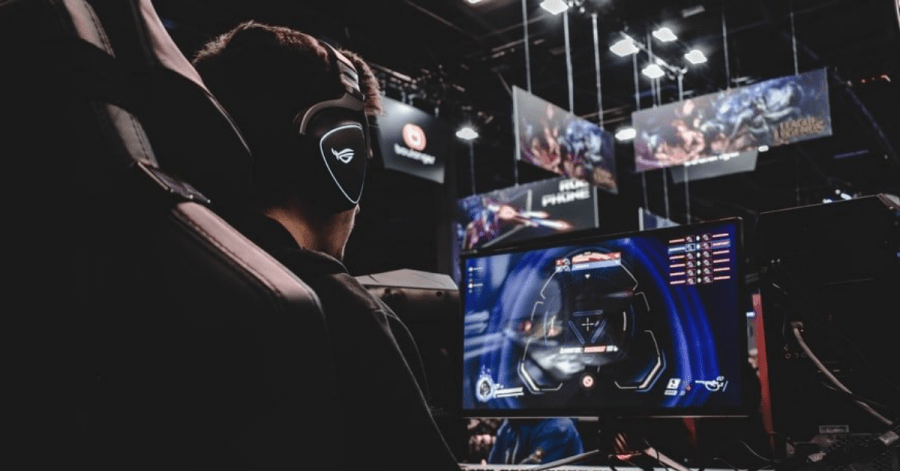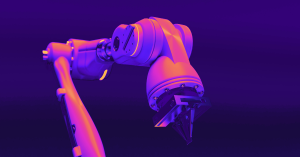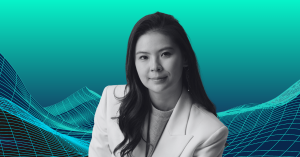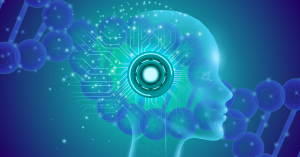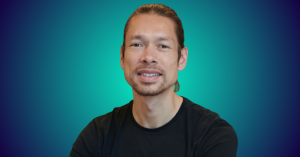The first DAO (decentralized autonomous organization), developed by a mainly Bulgarian team, is now a reality. Founded in August 2021, EnterDAO is built on the Ethereum blockchain and aims to develop products enabling new markets within the metaverse economy, more specifically in the Web 3.0 metaverse gaming space.
Through its two core products, LandWorks and MetaPortal, it has a mission to solve the problems of limited and expensive access to metaverse land and difficult user onboarding of metaverse games.
In the short time since the start of the project, the DAO raised a $1.8M investment from 36 global funds, angels, and founders in the crypto and blockchain sectors. Some of them include D64 Ventures, 4RC, Delphi Ventures and Mark Yusko, and blockchain founders such as John Patrick Mullin, founder of Mantra DAO, and Ivo Georgiev, founder of Ambire (formerly AdEx Network).
“We deliberately chose to raise capital from various investors instead of a few specialized funds because each individual contributor is an important part of the Web 3.0 community and has their own audience. This helped us develop and grow our own community to a couple of thousands in our Discord and social media channels,” Zhivko Todorov, co-founder of EnterDAO, says.
In an interview with Zhivko Todorov and Nick Todorov, The Recursive took a long journey within the new Web 3.0 world to answer the questions: are DAOs the future of business management, what they actually are, and where does EnterDAO fit in the Web 3 and Metaverse ecosystems.
The paradigm shift in the blockchain market
EnterDAO’s founding team comprises 8 people who have been building decentralized apps and enabling infrastructure in LimeChain, Proof Systems, Universe.xyz, and BarnBridge. They include the co-founders of LimeChain – George Spasov, and Nick Todorov, as well as other LimeChain team members – Zhivko Todorov, Kristiyan Srebrev, Radina Talanova,Vlad Ivanov, Christian Veselinov, Deyan Grozdanov, Daniel Ivanov, and Eliana Tsiparova.
Limechain is a Bulgarian blockchain development company that has been creating blockchain products and solutions since 2017. One of the main goals of the company has been to contribute to the development of an entire blockchain and crypto ecosystem in Bulgaria. So there was a natural relationship between the vision of the company and the incubated EnterDAO.
“Ever since the beginning, we had the idea to develop our own products – open-source solutions that help the wider blockchain community. At the beginning of 2021, while working with some of our clients, we observed that two strong narratives were forming in the blockchain community. One of them was NFTs and the second was the increasing proliferation of games that leverage blockchain technology,” Zhivko Todorov explains.
Recognizing that there were unmet demands in the blockchain and Web 3.0 communities, they decided to catch the opportunity to develop blockchain products for next-generation gaming and digital art industries. To ensure that their new venture would be successful in the future, they built it under the DAO principle.
“DAO is a form of a digital cooperative with a loose organizational structure that allows all stakeholders of the organization to participate in the management. They also have stakes of ownership over the DAO in the form of tokens and can vote on various governance topics. As a whole, the organization is owned and controlled by the community – the team that has created the DAO, the investors, and the people who use the product,” Zhivko Todorov highlights.
What is DAO and how does it work
DAOs are in their essence traditional organizations just like Uber or Facebook, with the big difference that they are completely autonomous. Most often they are open source which makes them transparent, while the fact that they are based on blockchain makes them independent of human interventions, including from their original creators. There is no CEO, no CFO, and basically no employees because every process is run by code.
This does not mean that the stakeholders do not have any power over the DAO because much like traditional companies, decentralized organizations allow stakeholders to vote on changes. Stakeholders of DAOs own tokens which equate to shares in the company that brings voting rights. The tokens are either released during the funding period before the DAO is set or at specific intervals that are coded into the smart contracts of the DAO.
Put in order words, DAOs operate autonomously, but the community of the particular DAO can vote and influence the decisions and the direction of the organization.
Web 3.0 and Metaverse games
“Web 3.0 is the new stage of development of the whole Internet space. If Web 2.0 was about Facebook and Instagram where the platform owns all the content and the data, in Web 3.0 everything is transparent and decentralized. The people who use Web 3.0 platforms not only own their content but also own a part of the whole organization in the form of tokens”, Zhivko Todorov explains.
He refers to a quote by Chris Dixon, General Partner at Andreessen Horowitz (a16z), a Silicon Valley VC, to explain in simple terms the evolution of the Web. “If Web 1.0 was read-only, Web 2.0 is read and write, while Web 3.0 is read plus write plus own”, he adds.
In this context, the metaverse is the broader virtual space in Web 3.0 which includes digital arts, social media, games, and basically anything that is outside the physical reality and part of the digital Web 3.0 space.
Metaverse games are games that resemble a virtual world and can be played either with VR technology or without any additional hardware where players can spend time together, go to various events and share experiences, or create content in the game. For example, if players want to build a house or host an event, they have to buy or rent virtual real estate.
“To make a parallel with something more traditional, let’s look at the famous WarCraft and Sims games. In Web 3.0 players would be able to own the land and the items. Web 3.0 games are developed by teams but they own only a minority part of the projects around 20-30%, while the rest are allocated through tokens of ownership to players and investors,” Zhivko Todorov outlines.
The products of EnterDAO
EnterDAO creates products that provide a market infrastructure in the Web 3.0 metaverse space. Their first product, LandWorks, is a metaverse land renting marketplace that enables period-based renting of land in Web 3.0 metaverse games. The platform allows landowners to earn income on their assets, and renters to easily rent instead of buying virtual land.
“Simply said, as a player, I can use the marketplace to rent a piece of land in a specific metaverse game, for example, Decentraland – the first game that we are going to integrate. Then I can build a store, make an online event, and use that for a couple of days, after which I return the virtual land back to the owner,” Zhivko Todorov says.
According to Nick Todorov, metaverse games will be the social spaces of the future, similar to what social media platforms were ten years ago. “We see that more and more brands and celebrities are making events inside metaverse games such as Coca Cola, Dominos, Louis Vuitton, or Snoop Dog. Right now, however, these pieces of virtual land are very costly. Moreover, currently, there are a lot of owners of virtual real estate property who can’t do anything with their investment besides hoping to resell it for a higher price in the future,” Nick Todorov explains.
One of the main goals of EnterDAO is to expand the offerings of our two products. The first product LandWorks is almost ready and they hope to be able to release it by the end of January. Starting off with one metaverse game, Decentraland, they hope to onboard other games such as Sandbox and Cryptobox by the end of 2022.
The second product of EnterDAO is called MetaPortal and resembles Steam, the Desktop app for PC games, with the difference that it is an application for searching, finding, and playing Web 3.0 games. “You can think of it as an App Store, that would allow you not only to browse games but also play games in the portal. There are also social elements that would allow you to invite friends and meet them in some metaverse space,” Zhivko Todorov explains.
The team of EnterDAO aims to release the first version by the end of February 2022. Recently, EnterDAO released an audio-visual NFT collection of 5000 items of soundtracks and digital art pieces created by Bulgarian artists. The collection called “Sharded Minds” is sold out.
The future of EnterDAO
“During the next year, we will strive to gather a bigger audience and users for both of our products. Since we are a DAO, the vision and the future of the two products depends on the community of EnterDAO. Our mission is to release the products and then the future of the organization will be guided based on the feedback of the community,” Zhivko Todorov concludes.

